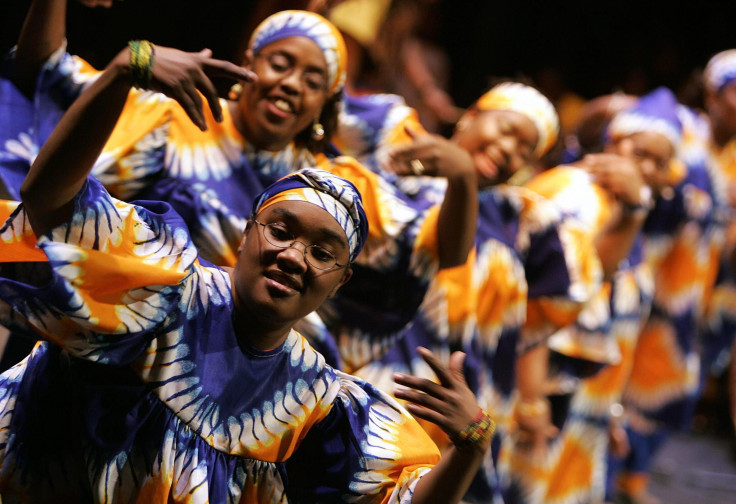Kwanzaa 2015: When Does The African-American Holiday Start And 5 Facts To Know

The annual seven-day festival of Kwanzaa starts Saturday with a celebration of African culture. The African-American holiday created in response to the commercialism of Christmas recognizes the values of ingathering, reverence, commemoration, recommitment and celebration.
Some of the symbols of Kwanzaa are crops, which represent collective labor and African-Americans' contributions to agriculture, and gifts, which honor commitments of the parents for the children. A unity cup called Kkimbe cha Umoja is used to toast ancestors.
Originating during the 1960s civil rights movement, Kwanzaa also celebrates seven principles honoring family and community: unity, self-determination, collective work and responsibility, cooperative economics, purpose, creativity and faith. Red, black and green candles are lit daily during the holiday.
"The seven principles of Kwanzaa — unity, self-determination, collective work and responsibility, cooperative economics, purpose, creativity and faith — teach us that when we come together to strengthen our families and communities and honor the lesson of the past, we can face the future with joy and optimism," former U.S. President Bill Clinton has said.
Kwanzaa is celebrated from Dec. 26 to Jan. 1 each year. It's name comes from the first harvest celebrations held in ancient Egypt and Nubia. Below are five facts to know about Kwanzaa:
1. The theme of the holiday this year is "Embracing Kwanzaa's Principles and Practice: Creating and Celebrating the Good."
2. Kwanzaa was created in 1966 amid the Black Freedom movement as an expression of recovery and reconstruction of African culture.
3. Kwanzaa was conceived by Maulana Karenga, a professor of Africana Studies at California State University, Long Beach.
4. Kwanzaa is not a religious holiday. It is a cultural celebration.
5. Kwanzaa is celebrated by exchanging gifts, eating food from various African countries and greeting each other with "Habari gani," which is Swahili for "How are you?/ How's the news with you?"
© Copyright IBTimes 2024. All rights reserved.






















